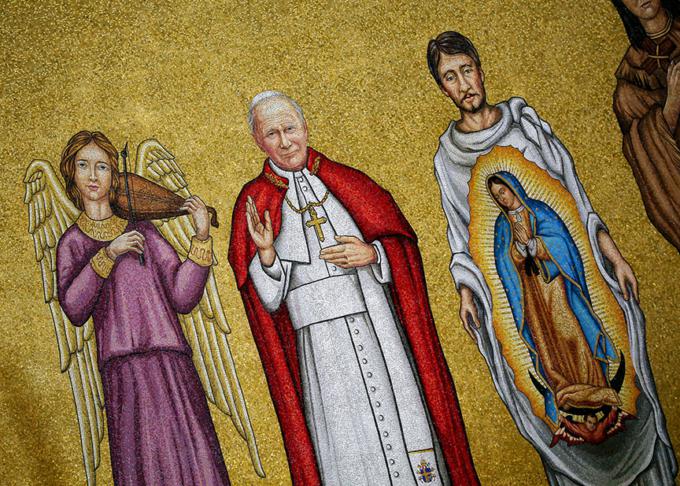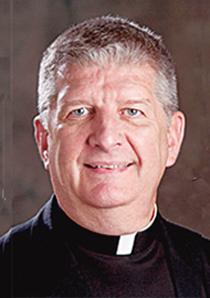
Faith
"Their glory fills us with joy, and their communion with us in Your Church gives us inspiration and strength as we hasten on our pilgrimage of faith, eager to meet them." (From the Preface of All Saints, Roman Missal, 2012.)

O’Grady
Q. Why do Catholics worship saints?
A. They don't.
The whole business of saints is somewhat of a mystery to many outside the Catholic or Orthodox traditions. The cited question and others along the same lines are posed because of a lack of understanding of "saints."
Happily, for all of us, there is only ONE perfect saint -- that would be the Blessed Virgin Mary. Every other saint was a sinner. This is especially good news for us. The message is no matter how great the sin, the sinner can become a saint.
From the beginning of the Church's life this has been the case. Think of those apostles, the best known of them Peter and Paul were flawed, probably the main reason each was chosen by Jesus. Jump a few centuries forward to St. Augustine. Check out his "Confessions" -- quite an interesting life. Imagine his poor mother, St. Monica.
Some saints, so we are told by their family members or members of their religious congregations, were not the easiest to live with. And not because they were living saints, but because they had human quirks, they were irritable, or impatient, or aloof.
Autobiographies of saints portray fragile human beings who nevertheless trusted in God's grace and mercy and sometimes, with great struggle and intense prayer, finally heard the call to holiness we all receive at Holy Baptism.
Pope St. John Paul II was known for his admiration and devotion to saints and his desire to increase the number of those beatified and canonized. This was and still is criticized or at least questioned by some about "making too many saints."
Remember it is not popes who make saints, it is God who does that. It is the Church through the pope who recognizes that God has "made this saint." During Pope St. John Paul II's papacy, this criticism was brought to Cardinal Joseph Ratzinger's attention. His response, typically insightful and clearly explained, was: "there is no such thing as too many saints. That is the mission of the Church to 'make' saints.'' In fact, there are so many saints already that we can't fit them all onto a single calendar, nor do we know all their names. That's why we have one day for them -- All Saints Day.
Saints are meant to be models of virtue. And we are invited to imitate their virtuous lives. In the saints, we celebrate the victory of Christ accomplished in a particular person, in a specific place and time.
Saints and blesseds are spread across the Church's calendar. And nations or dioceses may have their own calendars, as also religious institutes, e.g. Dominicans, Franciscans, Jesuits.
When we observe their liturgical celebration -- for most of us this means at Mass. There are usually Mass texts, prayers, and sometimes specific biblical readings assigned to their feast days.
The Mass prayers will probably make reference to something specific about a saint. The collect for our first United States' born saint is a nice example. "Loving God, you blessed Elizabeth Ann Seton with gifts of grace as wife and mother, educator, and foundress, so that she might spend her life in service to your people. Through her example and prayers, may we learn to express our love for you in love of our brothers and sisters." Some prayers will refer to the saint's place of ministry; particular vocation, e.g. teacher, priest; or his or her suffering as a martyr.
One of the devotionals of the Church, which has made its way into some liturgies, is the Litany of the Saints. There is a brief litany in the celebration of Baptism; a more extended one appears in the ordinations of a bishop, of priests, and of deacons; and at the dedication of a church. At the First Sunday of Lent, there is an option to use the Litany of the Saints as the entrance hymn. What we do in a litany is call on those who have already accomplished the goal of the Christian life and ask them to assist us above all with their prayers, but also with their example of holy living to go forward in this life to meet them in eternal life.
Recent articles in the Faith & Family section
-
The Christmas crecheFather Robert M. O'Grady
-
Feeling like ChristmasJaymie Stuart Wolfe
-
Parish priests and their peopleMsgr. Frank Kelley
-
Be the carolArchbishop Richard G. Henning
-
Give a Christmas Gift to the MissionsMaureen Crowley Heil


















